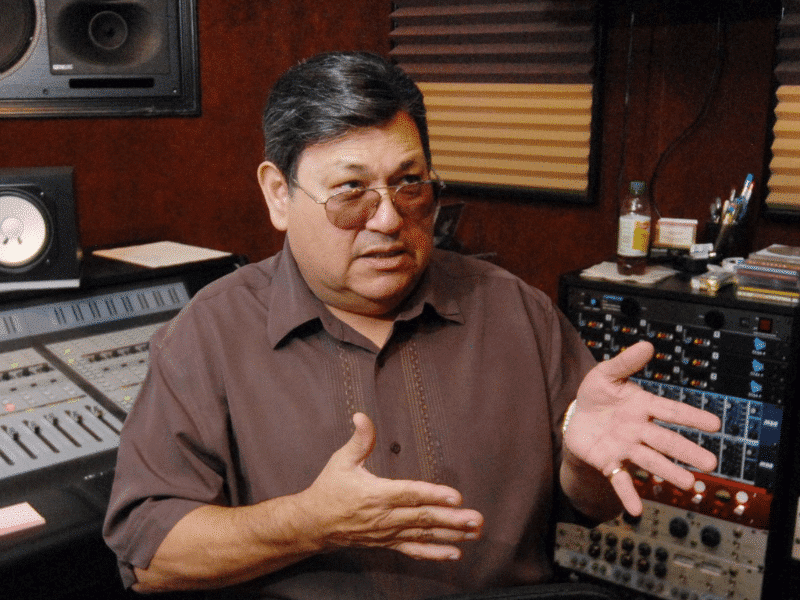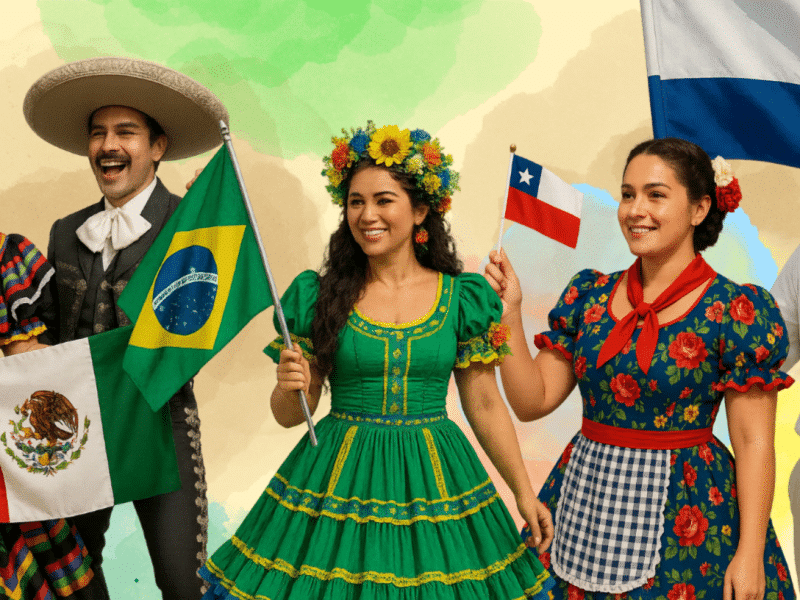“You’re Enough:” Women’s March Taps Into Latina Power
Nearly four years after its inception, Women’s March has cemented itself as one of the leading organizations mobilizing women in American politics.

Nearly four years after its inception, Women’s March has cemented itself as one of the leading organizations mobilizing women in American politics. What began as an iconic march in 2017 marking the beginning of a nationwide resistance against the Trump Administration has become an organization tasked with channeling that same momentum from the streets to the ballot box this November.
Executive Director Rachel Carmona has come prepared to meet this moment with a grit acquired through her lived experiences as a first-generation Mexican American. Carmona talked with Luz Collective about her work leading the charge.
Christian: We are days from possibly the most crucial election of our lifetime. How are you hanging in there?
Rachel: I would describe my mindset as determined. I’m really just focused on controlling what I can control and pushing towards the outcome that our community and our country needs.
Christian: You’ve devoted your life to working for incredible causes. Can you share with me a little bit about your lived experience and how that’s influenced your work?
Rachel: I think anybody’s life and career ends up being a series of small granular steps. I was a domestic worker cleaning houses for three years after graduating high school. It was those years working in wealthy people’s homes that really drew into focus for me the ways in which there are two Americas. It was a hard road going from that to community college part-time at night and then full-time in the day before eventually transferring over to four-year college. The system is set against us. It takes a superhuman effort to get past those obstacles and make that road easier for others. That’s what my career has been focused on.
Christian: Congrats on the incredible turnout on October 17. Why was it so important for you to host not one but two marches this year?
Rachel: We hadn’t planned on doing two marches. Then with the death of Ruth Bader Ginsburg, we heard overwhelmingly from our base that they wanted to march and take action. We also felt like it was important to get us together as a community one more time because, at the end of the day, women will be the ones to decide this election. Poll after poll men are split. Whichever candidate comes out ahead, it’s going to be because of the women and women of color who are turning out. The Latino community is also voting in record numbers as far as early voting and mail-in ballots go, so I think our community is going to play a significant role both in this election and the elections to come.
Christian: Definitely. I think more people are gradually waking up to this recognition that women can and will change the tide not only with the election of our next president but also a few Senate seats that are being considered toss-ups at the moment. Can you talk to me about the work you’re doing with Women’s March to mobilize women across America to go out and vote this year?
Rachel: We’ve spent the last few months ramping up our electoral work. Together with our sister organization, Women’s March Action, we’ve texted somewhere around 12 million women. Our volunteers also got together on October 17 and texted over 6 million women that weekend alone. We’ve also been phone banking our own base. We have called tens of thousands of women to get them to commit to vote tripling. Our text bank gets 10% more responses than the national average. It just demonstrates to us that women really want to be building power with other women right now. Now is the time for us to recognize our power, to consolidate our power, and demonstrate that power in the polls.
Christian: I think a mistake a lot of organizations that claim to center the advancement of women in society make is that they fail to acknowledge the diversity of womanhood and what that means in America. How have you prioritized the organization’s mission to include women who have historically been left out of these conversations and movements?
Rachel: Women of color have been doing the work for decades, we just haven’t been recognized for it. As it relates to Women’s March, it’s in every single aspect of our operational planning. It starts with a board, an executive team, and a staff that is majority women of color. We don’t perceive racial analysis to be outside of a gender justice analysis. For example, we know that an alarming number of women left the workforce last month due to Covid. We also know that women who identify as Latina are getting hit the worst financially. We have to recognize that while this has been bad for all women, it’s been even worse for some women. We can’t have that conversation without being clear about it. So that’s the mechanics of how we do it. First, it starts with the people and then we try to center the issues and we try to make sure that while it’s accessible, it is not simplified.
Christian: What do you say to the women you encounter who don’t believe their vote matters? What’s your pitch on what’s at stake in this election?
Rachel: It’s our future. Do we want to have clean water? Do we want to know that our kids and future generations are going to have clean air to breathe? Do we know that folks are going to be met with care and not a cage if they come to our border? We’re talking about the soul of our country and in many ways we’re talking about our humanity. Voting is not the cure but it’s the first step in a very long process of building our country to be the place that it’s supposed to be for all of us and to reach the promise of its potential. It’s the first step in a journey and that journey requires all of us to walk. Democracy is something that we all have a role in building and upholding. As we’ve seen in the last four years, living in a democracy is not something that’s always going to be there unless we work at it.
Christian: Is there anything you’d like to share with Luz Collective as it relates to the importance of leaning into our power?
Rachel: Always know that you’re enough. Sometimes it feels like a thing is too big or too much for you to fix by yourself. So many times, as Latinas, we’re asked to bear more than our fair share. Don’t worry about solving things. Don’t worry about having a solution. Don’t worry about not being an expert. Don’t worry about being perfect and doing everything. Just worry about making a small contribution. You never know when your contribution could be that one grain of sand that slips the scales to your favor. So just get involved, build power with people in your community wherever that is and whatever it looks like, and make a difference in your own way.




